Fungal Pathogen Genomics (Virtual)
2–6 June 2025
Virtual Course
Hands-on training in web-based data-mining resources for fungal genomes
Summary
Please note: The 2025 Fungal Pathogen Genomics course will be delivered in a virtual format.
The kingdom of Fungi encompasses a diverse range of organisms adapted to various environmental niches, playing crucial roles in ecosystems, human/animal/plant health, and global food security. Species like Fusarium, Pyricularia, Ustilago, Puccinia, and Zymoseptoria, etc. threaten agricultural ecosystems and food security worldwide. Fungal pathogens such as Aspergillus, Candida, Mucor, Cryptococcus, Histoplasma, Coccidioides, Batrachochytrium, and others are of great concern for medical and veterinary professionals due to their potential to cause allergies, illnesses, and life-threatening infections. Furthermore, fungi serve as essential model systems in basic and applied research and play pivotal roles in biotechnology, food production, biomedical and pharmaceutical research and the biofuel industry.
High-throughput ‘omics’ data technologies empower scientists to conduct extensive analyses of the genomes, transcriptomes, proteomes, genetic variance data of a wide array of fungal and oomycete organisms. These analyses are essential for inquiries regarding pathogenicity, host-pathogen interactions, and the discovery of novel drug targets. To enhance accessibility and re-use of data, and facilitate analysis of different types of data, several web-based bioinformatic resources have been developed.
This week-long course represents a collaborative teaching effort involving the following resources dedicated to supporting research on fungal and oomycete species:
- FungiDB/VEuPathDB
- Ensembl Fungi/EBI
- SGD/CGD
- MycoCosm/JGI
The Fungal Pathogen Genomics course offers hands-on training on how to use unique, web-based tools provided by individual resources and apply them to both public and private datasets. Participants will learn to formulate testable hypotheses and explore genomes, functional omics datasets (transcriptomics, SNP, proteomics, etc.) and other data types across multiple databases.
Learning outcomes
After attending this course, participants will be able to:
- Navigate each database and answer research questions by creating custom queries across multiple bioinformatics resources.
- Utilise built-in web-based bioinformatics tools to mine omics data, including:
- finding genes
- identifying orthologs in other species via orthologous transformations
- determining trends through GO and metabolic pathway enrichment analysis
- visualizing genomics, proteomics, and transcriptomics data
- Gain an understanding of the practical advantages and limitations of the tools used in bioinformatics, ensuring that the skills acquired are pertinent to their research and future endeavors.
- Develop skills and knowledge necessary to actively contribute to community genome curation and annotation efforts.
- Apply their newfound skills in web-based bioinformatic resources in their research projects.
Programme
This virtual course will start at around 1pm BST on Monday 2 June 2025 and close at approximately 5pm on Friday 6 June 2025. It is anticipated that there will be 4 direct contact hours per day with attendees expected to do between 1 and 2 hours of additional work outside this time. In addition to the regular contact hours, members of the training team will be available to answer questions both before and after these times.
Daily activities will encompass both individual and group training exercises, complemented by supplementary lectures focusing on bioinformatics techniques and tools utilized by various databases. For example, the learning materials will address the following topics:
- Navigating gene record pages and genome browsers.
- Identification of orthologs and orthology-based inference.
- Comparative genomics, gene trees, whole-genome alignment.
- Creating in-silico experiments in FungiDB by employing search queries and public omics datasets, and performing enrichment analysis on search results.
- Identifying genetic interactions, virulence genes, secondary metabolites.
- Introduction to manual genome curation using Apollo, a web-based platform for structural and functional genome annotation.
- Identifying browser search strategies to explore molecular interactions and references to external resources.
The programme also features talks by globally renowned guest speakers and provides occasions for engaging in scientific discussions and networking within a friendly environment.
Instructors and speakers
Training Team

Evelina Basenko
University of Liverpool, UK
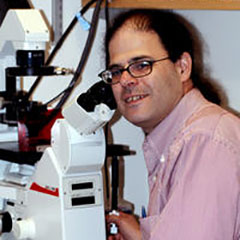
David Roos
University of Pennsylvania, USA
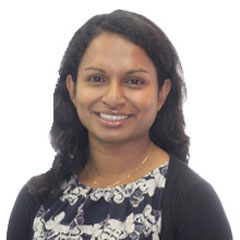
Nishadi De Silva
EMBL-EBI, UK
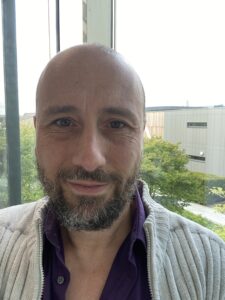
Manuel Carbajo Martinez
EMBL-EBI, UK

Jodi Lew-Smith
Stanford University, USA

Kathryn Crouch
University of Glasgow, UK

Stuart Brown
University of Pennsylvania, USA
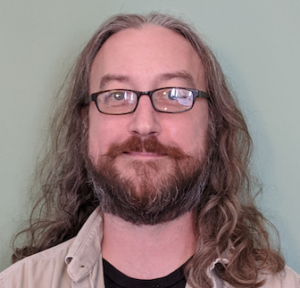
Richard Hayes
US DOE Joint Genome Institute, USA
Wellcome Connecting Science - Learning and Training

Alice Matimba
Head of Training and Global Capacity

Martin Aslett
Informatics Manager

Vaishnavi Vikas Gangadhar
Informatics Technical Officer
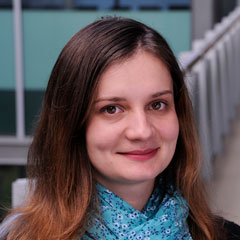
Monica Abrudan
Education Developer

Karon Chappell
Event Organiser
How to apply
Prerequisites
Applicants should be graduate students, postdocs, clinical scientists, clinicians/healthcare professionals or lab heads working on fungal pathogens.
How to Apply
- Start the application
- Click on the “Apply” button above to start your application. Please note that places are limited and will be awarded based on merit.
- Demonstrate the course’s relevance to your project/role
- Our courses are highly subscribed, so it is essential to clearly show how the skills you will learn in the course will be directly applicable and beneficial to your current role/project and how do you plan to disseminate the knowledge after the course.
- Preference will be given to applicants who are currently working on related projects or soon will be.
- Letter of recommendation
- Applications must be supported by a recommendation from a scientific or clinical sponsor (e.g., supervisor, line manager, or head of department). Ensure that your sponsor provides a tailored supporting statement by the application deadline. This statement must be uploaded as a PDF document to the registration system within your application. Applications without a supporting statement will not be considered.
- Need help?
- If you encounter any problems with the online application process, please contact us at courses@wellcomeconnectingscience.org for assistance.
Application deadline: 18 March 2025
Cost
| Cost | ||
| *Course fee | £250.00 | |
*The course fee is subsidised by Wellcome Connecting Science. Contact us at courses@wellcomeconnectingscience.org for the commercial rate.
The fee will be requested once acceptance is confirmed.
Bursaries
Limited bursaries are available (up to 50% reduction on the course fee) and are awarded on merit. If you would like to apply for a bursary, please complete the bursary section of the online application form, explaining why you would benefit from funding.
Bursaries can be applied for as part of the course application form. Applicants will be notified of a bursary award along with their place on the course, usually within one month of the application deadline. The decision of the selection committee is final.
Please note that both the applicant and sponsor are required to provide a justification for the bursary as part of the application.
Deadline: 18 March 2025
Additional funding opportunities
Visit our support page for additional financial support currently available.
Testimonials
Feedback from 2024 course:
“Interpreting genome assemblies and making sense of how gene annotation is performed was incredibly eye opening. Learning about the available tools on the various platforms was very insightful and has helped me envision my future experiments better.”
“It gave me confidence in attempting very daunting tasks, such as navigating whole genomes, annotation curation, and handling big data sets. It was very empowering as these skills are normally reserved to those with extensive backgrounds in bioinformatics in my institution. I feel I have more ownership and control of the strategies I would like to employ in my own research.”
“The instructors did a great job of distilling complex topics and not assuming everyone had a certain level of understanding. It gave me more confidence in asking questions and asking for help. I feel all of the topics were very relevant to my work and future projects.”

